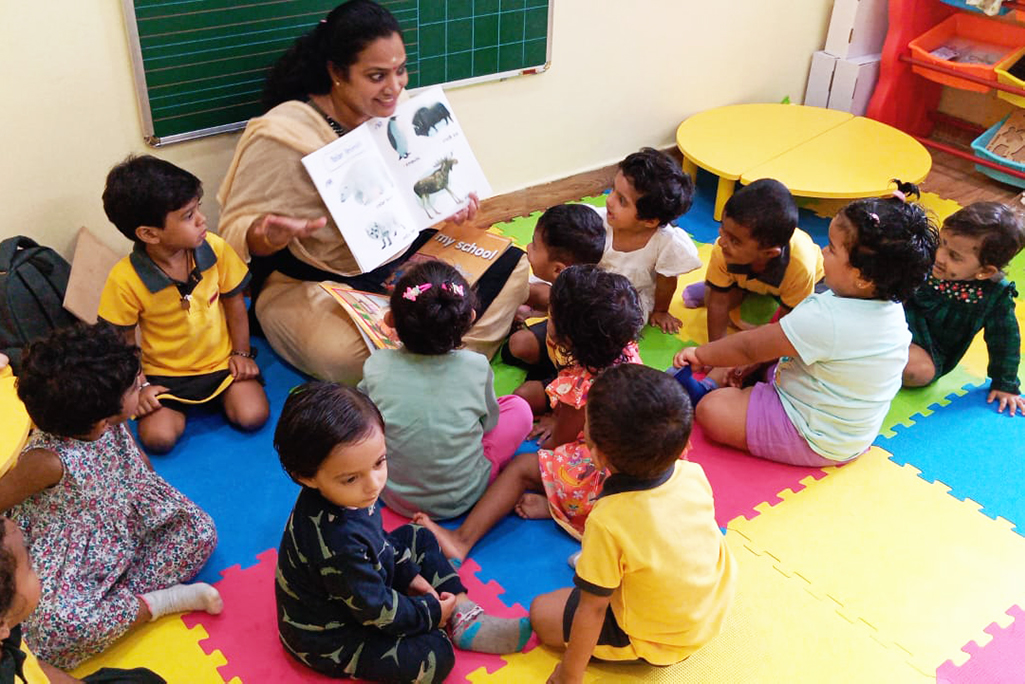
1. Vocabulary Expansion
Storytelling introduces new words to preschoolers in a natural context. Listening to stories helps them learn new words, understand meanings through context, and gradually build a rich vocabulary. For instance, a story about a farm might introduce them to words like “barn,” “tractor,” or “harvest,” which they might not encounter in daily conversations.
2. Improved Listening Skills
When children listen to stories, they focus on the speaker, which improves their listening and comprehension skills. Preschoolers learn to follow the narrative flow, pay attention to details, and understand the sequence of events, which are essential for language processing.
3. Enhanced Imagination and Creativity
Storytelling stimulates a child’s imagination, encouraging them to visualize characters, settings, and events. This creative process allows children to explore language beyond their immediate environment, expanding their ability to think in abstract terms and use descriptive language.
4. Better Understanding of Sentence Structure
Through storytelling, preschoolers are exposed to well-formed sentences and complex grammatical structures. As they listen, they subconsciously absorb the rules of language, including how sentences are constructed, verb tenses, and word order, which they can then replicate in their own speech.
5. Development of Communication Skills
By engaging in storytelling, children learn the art of conversation. They ask questions, retell stories in their own words, and express their thoughts about the plot and characters. This back-and-forth interaction helps improve their ability to express themselves clearly and engage in meaningful dialogue.
6. Encourages Early Reading Skills
Consistency is key when it comes to managing behavior. Ensure that consequences for negative behavior are fair, consistent, and immediate. This helps children understand the link between their actions and the outcomes. Avoid harsh punishments; instead, focus on consequences that teach and guide.
7. Encourage Independence
Stories introduce preschoolers to the concept of reading by familiarizing them with the structure of a book, such as beginning, middle, and end. Repeated storytelling also helps children recognize words and phrases, fostering an interest in reading and developing pre-literacy skills.
8. Cultural Awareness and Emotional Intelligence
Many stories impart lessons on different cultures, values, and emotions. This not only broadens a child’s worldview but also helps them develop empathy, understanding, and the ability to articulate feelings, which are essential components of emotional intelligence and social communication.
Storytelling is a fun and interactive way to build language skills in preschoolers. It nurtures their vocabulary, listening skills, imagination, and overall communication abilities, setting the foundation for lifelong learning and literacy. Incorporating stories into daily routines can transform a child’s language development journey, fostering a love for words and creativity.